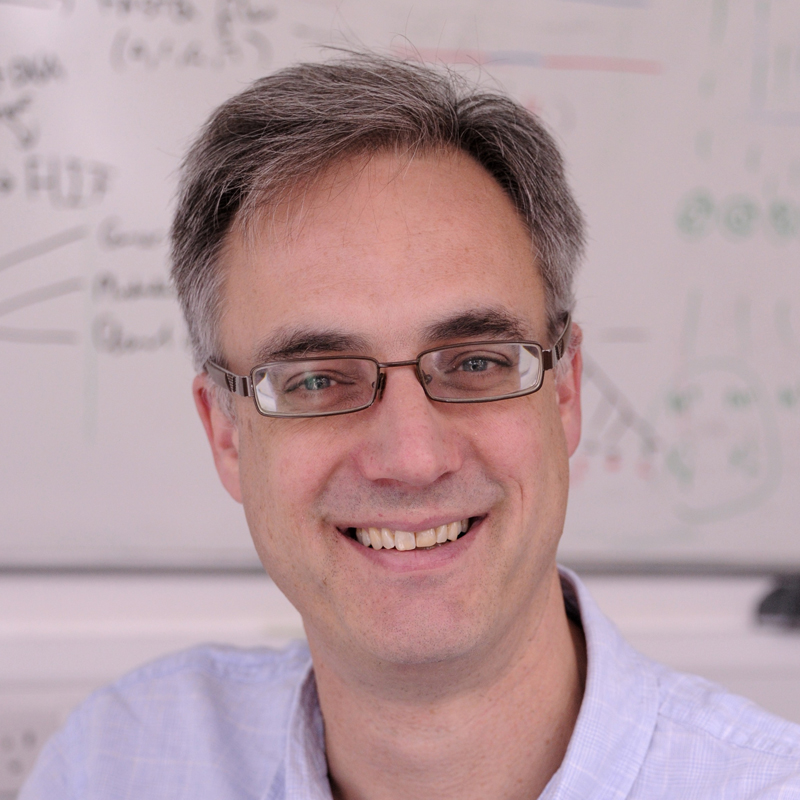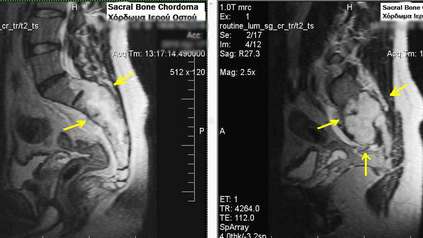Lead cancer researcher elected to Academy of Medical Sciences

“I am delighted to become a Fellow of the Academy of Medical Sciences, it is a great honour to be recognised in this way. However, this award really belongs to my colleagues and collaborators here at the Sanger Institute and worldwide. Cancer is a massively complex interplay of genetic interactions that requires large-scale collaboration across to continents to investigate and analyse. I am grateful to everyone I have worked with over the years, and hope that our work will lay the foundations of understanding that will deliver improved treatment and prevention of this terrible disease.”
Dr Peter Campbell Head of the Cancer, Ageing and Somatic Mutation Programme at the Wellcome Sanger Institute
During his time at the Sanger Institute, Peter has been instrumental in developing new ways to explore and understand the processes that cause the development of cancer. His team’s research into the key genetic mechanisms that drive cancer formation is having a profound impact on the field of cancer genomics and is opening up new clinical approaches to diagnosing and treating tumours.
“Peter is a tireless, visionary and generous researcher who is dedicated to unlocking the secrets of cancer and understanding the wider implications of somatic mutations in human cells. His leadership and insights have helped to produce new ways of understanding cancer formation that are laying the foundations for future discoveries and therapies that will be developed by researchers worldwide for years to come. His election to the Academy of Medical Sciences is extremely well deserved.”
Professor Sir Mike Stratton Director of the Wellcome Sanger Institute
The Institute’s cancer research programme is pioneering the use of cutting-edge DNA sequencing, cell biology and machine learning to create innovative methods to enhance clinical practice. For example, Peter and his team have developed a disease-prediction tool that can give personalised predictions of future disease outcomes for patients with certain types of blood cancers. While his role in helping to lead the work of the International Cancer Genome Consortium has been vital in coordinating researchers’ efforts worldwide to develop a coherent and fine-grained understanding of the genetic roots of cancer.
“The Academy’s Fellowship is a unique assembly of the finest minds in biomedical and health research, from across the UK and beyond. Our Fellows are at the centre of all that we do, from supporting early career researchers via our hugely popular mentorship programme to incorporating public and patient views into health research. Their collective wisdom is a national asset to guide research and policy aimed at tackling pressing health challenges.
“It brings me great pleasure to congratulate the new Fellows, each of whom has pushed the boundaries of their individual research field. I am always delighted to see the Fellowship expand, adding fresh talent to our invaluable pool of high quality guidance, advice and expertise.”
Professor Sir Robert Lechler PMedSci President of the Academy of Medical Sciences
Peter will be formally admitted to the Academy at a ceremony on 26 June 2019.
More information
This year Fellows were chosen from 413 candidates. The eight Sectional Committees met in March to consider potential Fellows for 2019 entry to the Academy. Three nominators from within the Fellowship must back each candidate. The Academy Registrar, Professor Philippa Saunders FRSE FMedSci, Director of Postgraduate Research, University of Edinburgh, oversees the election. 95 candidates were shortlisted for peer review. The election brings the number of Fellows to 1301.
In 2013, the Academy released the report “Representation of women within the Academy’s Fellowship”, which scrutinised the nomination and election process for gender balance and equality.
Selected websites
The Academy of Medical Sciences
The Academy of Medical Sciences is the independent body in the UK representing the diversity of medical science. Our elected Fellows are the UK’s leading medical scientists from hospitals, academia, industry and the public service. Our mission is to advance biomedical and health research and its translation into benefits for society. We are working to secure a future in which:
- UK and global health is improved by the best research.
- The UK leads the world in biomedical and health research, and is renowned for the quality of its research outputs, talent and collaborations.
- Independent, high quality medical science advice informs the decisions that affect society.
- More people have a say in the future of health and research.
Our work focusses on four key objectives, promoting excellence, developing talented researchers, influencing research and policy and engaging patients, the public and professionals. https://acmedsci.ac.uk
The Wellcome Sanger Institute
The Sanger Institute is one of the world’s leading genome and biodata institutes. Through its ability to conduct research at scale, it is able to engage in bold and long-term exploratory projects that are designed to influence and empower science globally. Institute research findings, generated through its own research programmes and through its leading role in international consortia, are being used to develop new diagnostics and treatments for human disease and to understand life on Earth. Find out more at www.sanger.ac.uk or follow @sangerinstitute on Twitter, Facebook, LinkedIn and on our Blog.
About Wellcome
Wellcome exists to improve health by helping great ideas to thrive. We support researchers, we take on big health challenges, we campaign for better science, and we help everyone get involved with science and health research. We are a politically and financially independent foundation. https://wellcome.org/



